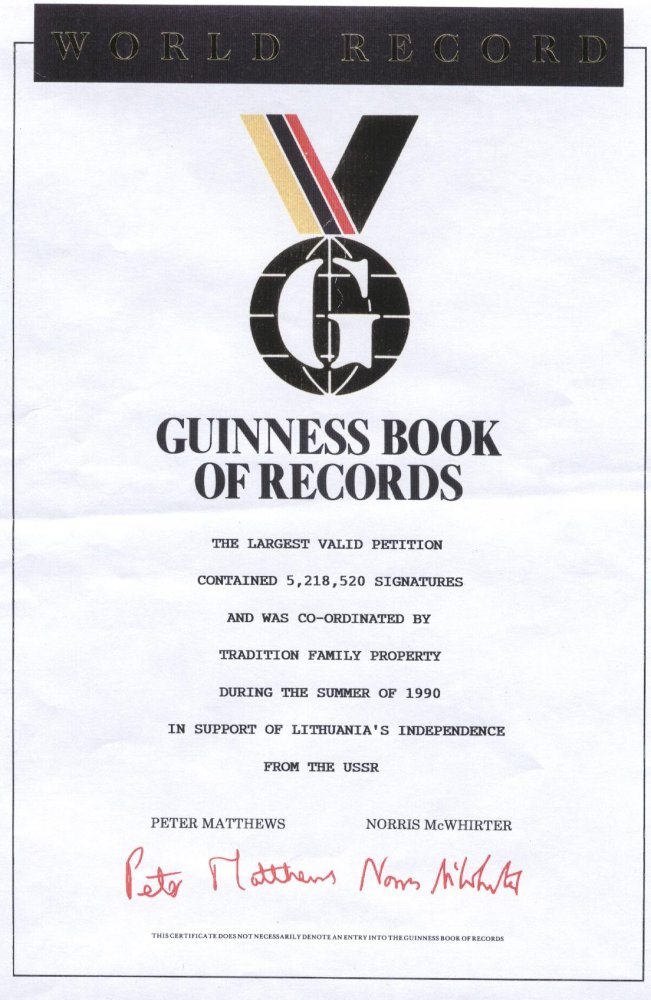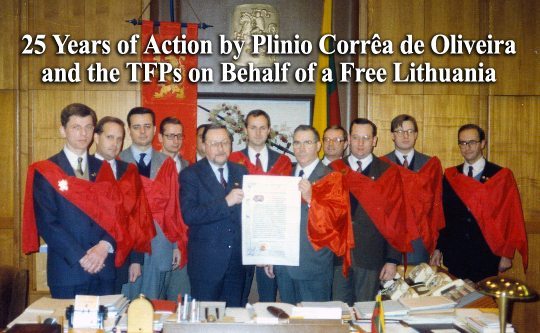
On the initiative of Prof. Plinio Corrêa de Oliveira, TFPs in 20 countries around the world collected over 5 million signatures on behalf of Lithuania’s independence, the largest valid petition drive in history at that time.
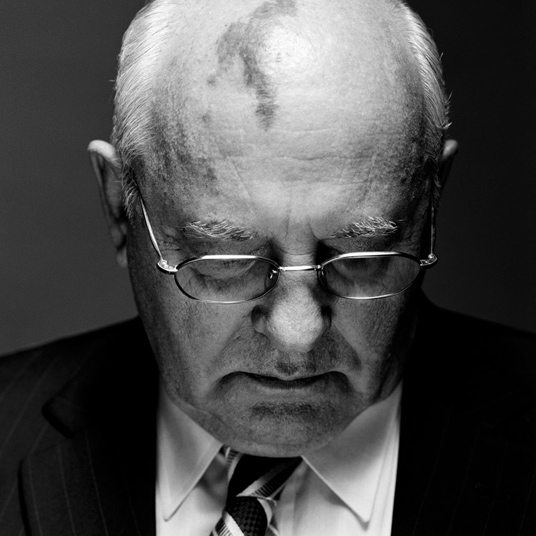
In November 1989 a wave of discontent sweeping the countries behind the Iron Curtain caused the fall of the Berlin Wall. It was the beginning of an unstoppable avalanche that would overthrow the Soviet empire despite Gorbachev’s fallacious promises of Perestroika and Glasnost.
An important and even decisive step in the collapse of the Soviet colossus was taken by the Lithuanian Parliament on March 11, 1990 by declaring their country’s independence from the Moscow tyrants.
One of three Baltic countries facing the Russian Bear, tiny Lithuania unsuccessfully sought support from Western countries. In the United States, France and elsewhere, its representatives received no support for their declaration of independence. Instead, they received defeatist advice trying to find a compromising solution with Moscow.
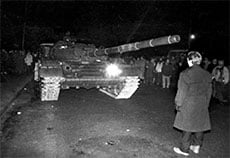
Photographer Andrius Petrulevičius.
Lithuanian Central State Archives.
Image licensed under CC BY 4.0 International. Singing Revolution Lithuania.LTMKM @ 2020. All rights reserved.
Lithuania’s declaration of independence was in serious danger of becoming a vain act that could cast the country into a tremendous humiliation that would only contribute to bury its people’s yearnings of freedom for more decades to come.
In this gloomy panorama full of apprehensions for Lithuania, on the initiative of Plinio Corrêa de Oliveira, at the end of May 1990 the Brazilian TFP took to the streets to collect signatures in support of Lithuania’s independence. It was soon joined in the task by the other TFPs spread across five continents. In a little over four months the TFPs in 20 countries collected the largest valid petition in history at the time totaling 5,218,520 signatures.
The TFP campaign, widely reported by the international media, gave Lithuanian patriots new encouragement and hope. They saw there were people worldwide — practically twice as numerous as its own population — who stretched to them a helping hand with a word of encouragement. This moral support which the TFPs gave Lithuania was decisive for Lithuanians to not allow themselves to be bamboozled by the suggestions for compromise coming from all over the West.
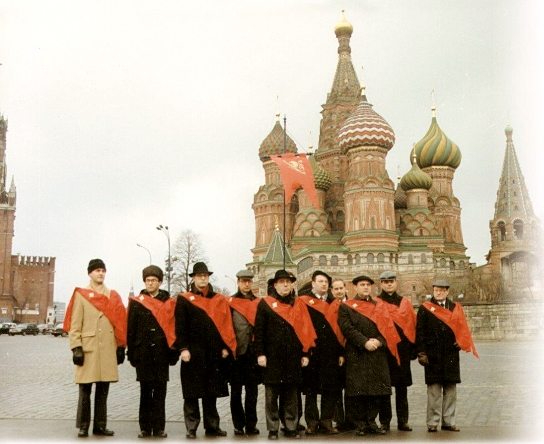
After microfilms of all the signatures were delivered at the Kremlin in early December 1990, a delegation comprising members from various TFPs of the Americas and Europe traveled to the Lithuanian capital, Vilnius, where it was enthusiastically received at the train station.
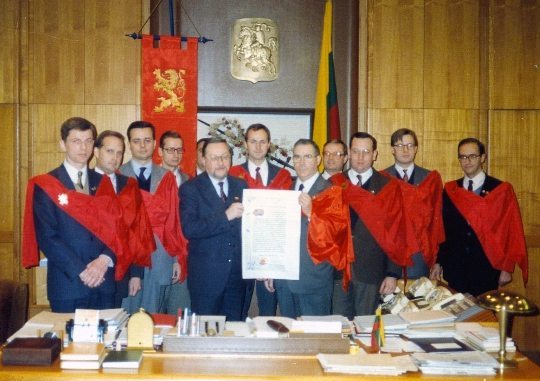
The TFP delegation visited Parliament, where it met President Vytautas Landsbergis and various members of parliament. They also visited with high-ranking ecclesiastical authorities including the Cardinal Archbishop of Kaunas, Most Rev. Vincentas Sladkevicius.
On the occasion, both Cardinal Sladkevicius and President Landsbergis asked the TFP members to not forget their country. The Cardinal went so far as to express the desire that a TFP be founded in Lithuania.
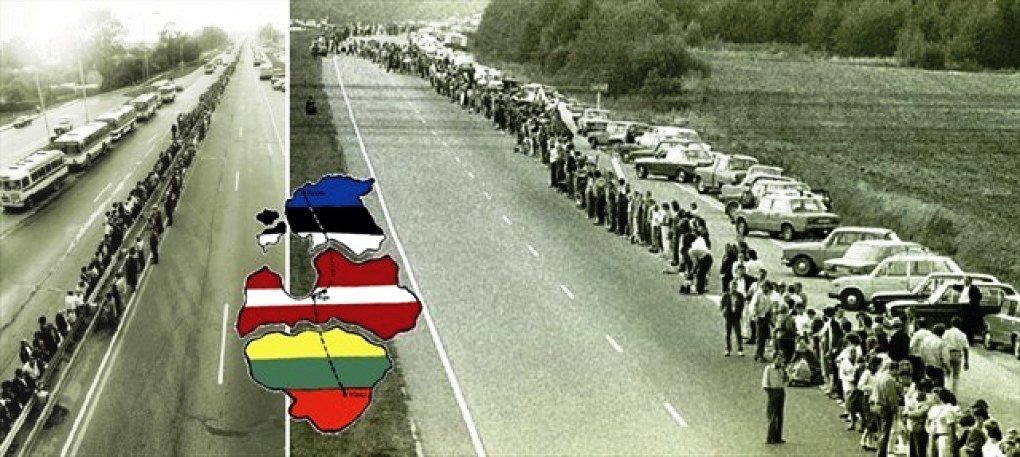
Fulfilling this request, since 1993 the TFPs have sent a delegation to visit Lithuania every year in the last week of August and the first week of September, maintaining the friendship of old, while reaching out to the new generations of Lithuanians, already born under the wings of freedom.
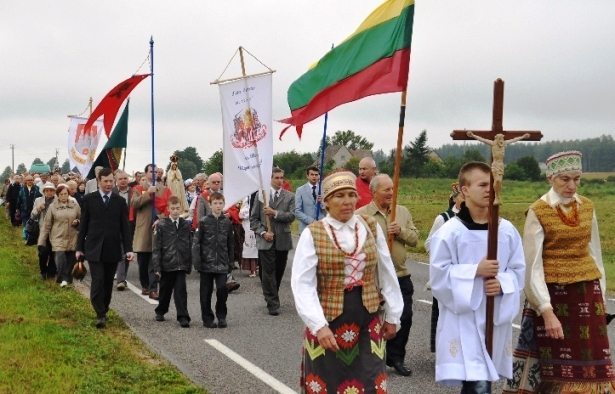
This year the international delegation of the TFPs was in Lithuania from August 26 to September 3. Among other activities, it participated in the traditional pilgrimage from Tytuvenai to Siluva, the site of an apparition of Our Lady in 1608, and the country’s principal Marian shrine. It also met in Parliament with parliamentarians of the conservative party, as well as with students in Vilnius and other cities.
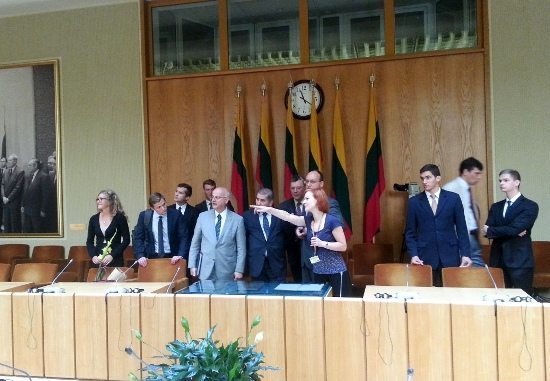
The school of thought of Plinio Corrêa de Oliveira has been disseminated in Lithuania since 2005 by the Krikščioniškosios kultūros institutas (Institute of Christian Culture), an entity akin to the TFP which last year published the essay, Revolution and Counter-Revolution, in addition to other works in defense of the traditional family.
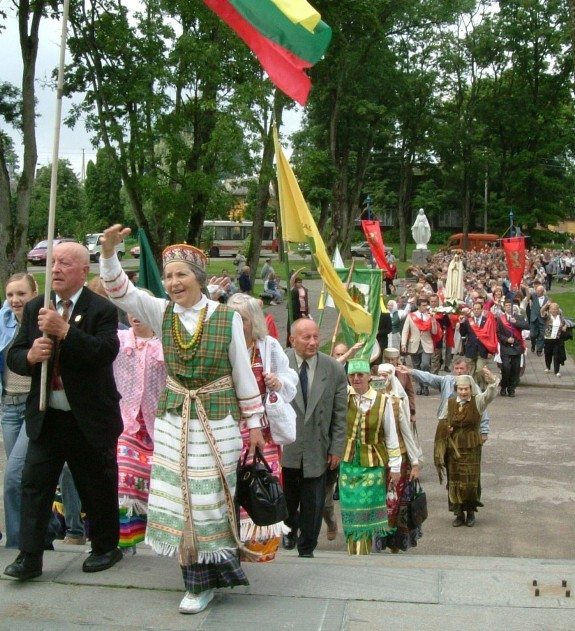
The Institute also publishes the annual TFP calendar, which is distributed by TFP members during their pilgrimage to Siluva.
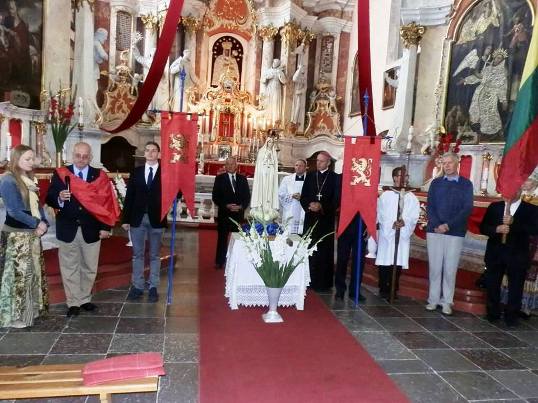
In order to maintain contact with its growing number of supporters, for five years the Krikščioniškosios kultūros institutas has been publishing the Lituania Christiana blog, which features materials of interest to the Lithuanian public. The blog features a number of links to websites of the TFPs and similar associations around the world.
Finally, for the last two years the Krikščioniškosios kultūros institutas has been holding symposia for students on current issues. The latest was held in Vilnius last July 25.
